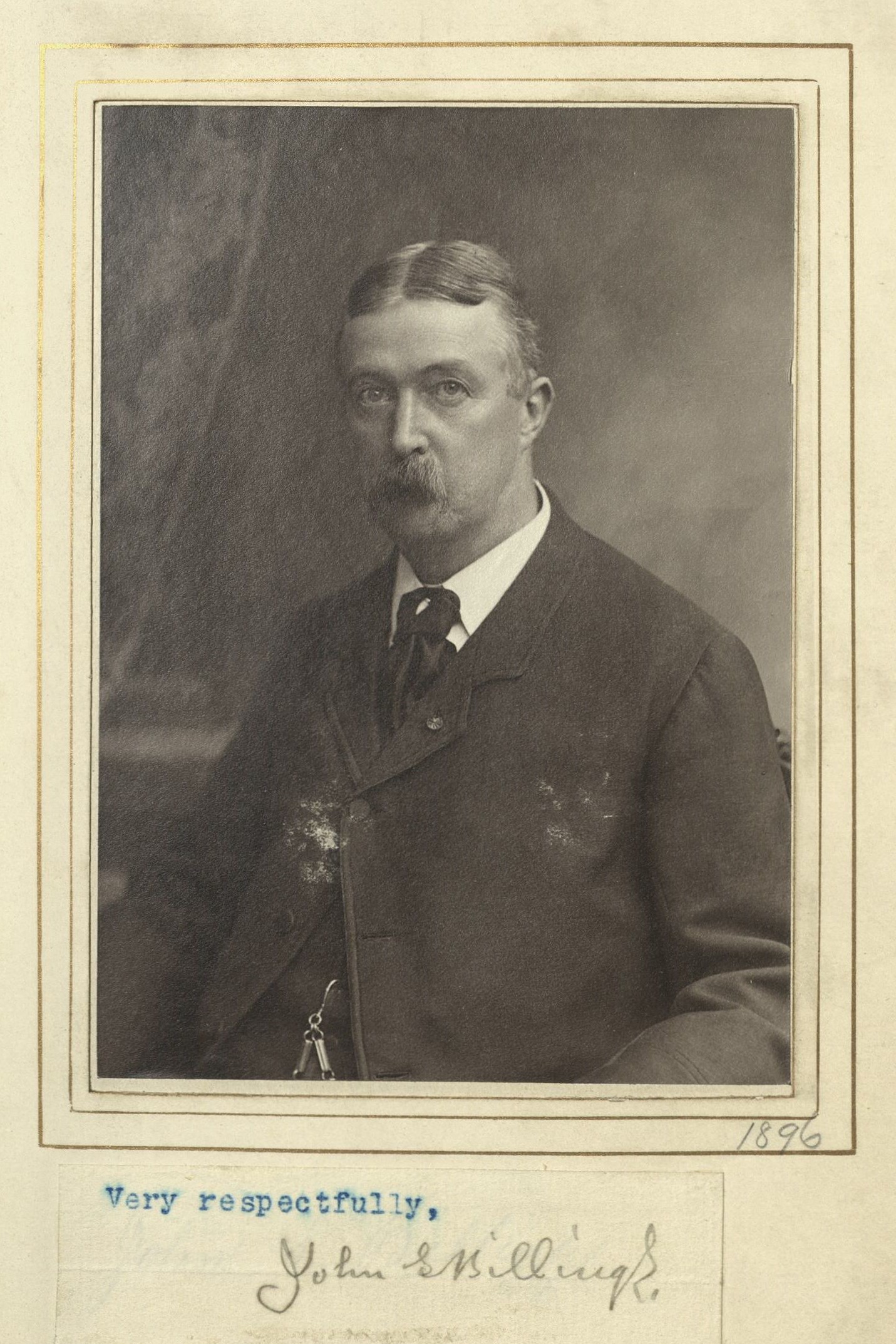Superintendent in Chief, New York Public Library/Surgeon
Centurion, 1896–1913
Born 12 April 1838 in Allensville, Indiana
Died 11 March 1913 in New York (Manhattan), New York
Buried Arlington National Cemetery , Arlington, Virginia
, Arlington, Virginia
Proposed by John L. Cadwalader and William E. Dodge
Elected 2 May 1896 at age fifty-eight
Proposer of:
Century Memorial
We are all rightly taken by the hero-life of self-devotion, which, whatever be its tangible results, is an achievement in itself. But the hero-life of John Shaw Billings was rewarded with accomplishment, the palpable and recognized accomplishment of feats of direct utility to suffering fellow-beings, to all branches of a noble profession, to the people at large.
Born in 1838, he soon turned to his own education, and worked his way through college, and next through the Medical College of Ohio, where he was graduated in 1860. Then he became a demonstrator of anatomy, serving also in hospitals, and in two years was offered an assistantship to a prominent surgeon. But the war had broken out, and Billings felt its call. Passing his examination brilliantly, he was appointed assistant surgeon in the regular army. His skill and boldness in operating soon led to his being placed in charge of the Cliffborne Hospital, near Georgetown, which he rebuilt, and there treated hundreds of Union and Confederate wounded. He was next sent to the West Philadelphia Satterlee Hospital with its thousands of beds of suffering, and in March, 1863, he reported for duty to the Army of the Potomac. At Chancellorsville he was repeatedly compelled under fire to move back his hospital of the second division of the Fifth Corps; and then it was his task—perhaps the most dreadful in the arduous secondary warfare of the field hospitals—to move back the wounded of a retreating army. Again at Gettysburg; there, too, after a day and night of ceaseless operating in a stone house and barn behind Round Top, he had to move his hospital under fire.
In December, 1864, an order to report at the Surgeon-General’s office ended his service in the field. Henceforth, with other duties, he was for years to devote himself to building up the great library in the Surgeon-General’s office in Washington, and to the creation of that monumental “Index Catalogue” which was to prove so useful to medical students of all countries. Yet during this period of his life, his work upon hospital construction was of scarcely less importance. Utilizing his experiences of the Civil War, he did perhaps more than any other man to promote in foreign countries as well as in America that kind of hospital which consists “in a central administrative building with barrack-like pavilions.” Among those of five eminent competitors, his plan was adopted by the Trustees of Johns Hopkins Hospital, and from 1876 to 1889 he acted as their adviser; while his advice was also sought in the construction or remodelling of other hospitals.
In 1895 Dr. Billings was mustered out of active service in the army, but only to be mustered into active service, first as Director of the new laboratory of hygiene in the University of Pennsylvania, and shortly as Director of the New York Public Library. There we knew him, and there those of us who used the library recognized the breadth of purpose, the power of order and efficiency which did so much to create the enormous engine for the diffusion of knowledge so near our doors,—we speak not of the building alone, but of the living enginery within, through which investigation and the pursuit of knowledge are made possible to all. A change came over the old Astor Library from the day that Dr. Billings took charge there—an electric keying up of everything. And through the years which brought the fulfilment of his great hope, and the library marched up to forty-second street, the all compassing activity of this man continued till he was mustered out of active service a few months ago. In this Association we recognize Dr. Billings’s services when as a member of the Board of Management and of the Committee on Literature, he rearranged our Library.
Henry Osborn Taylor
1914 Century Association Yearbook

